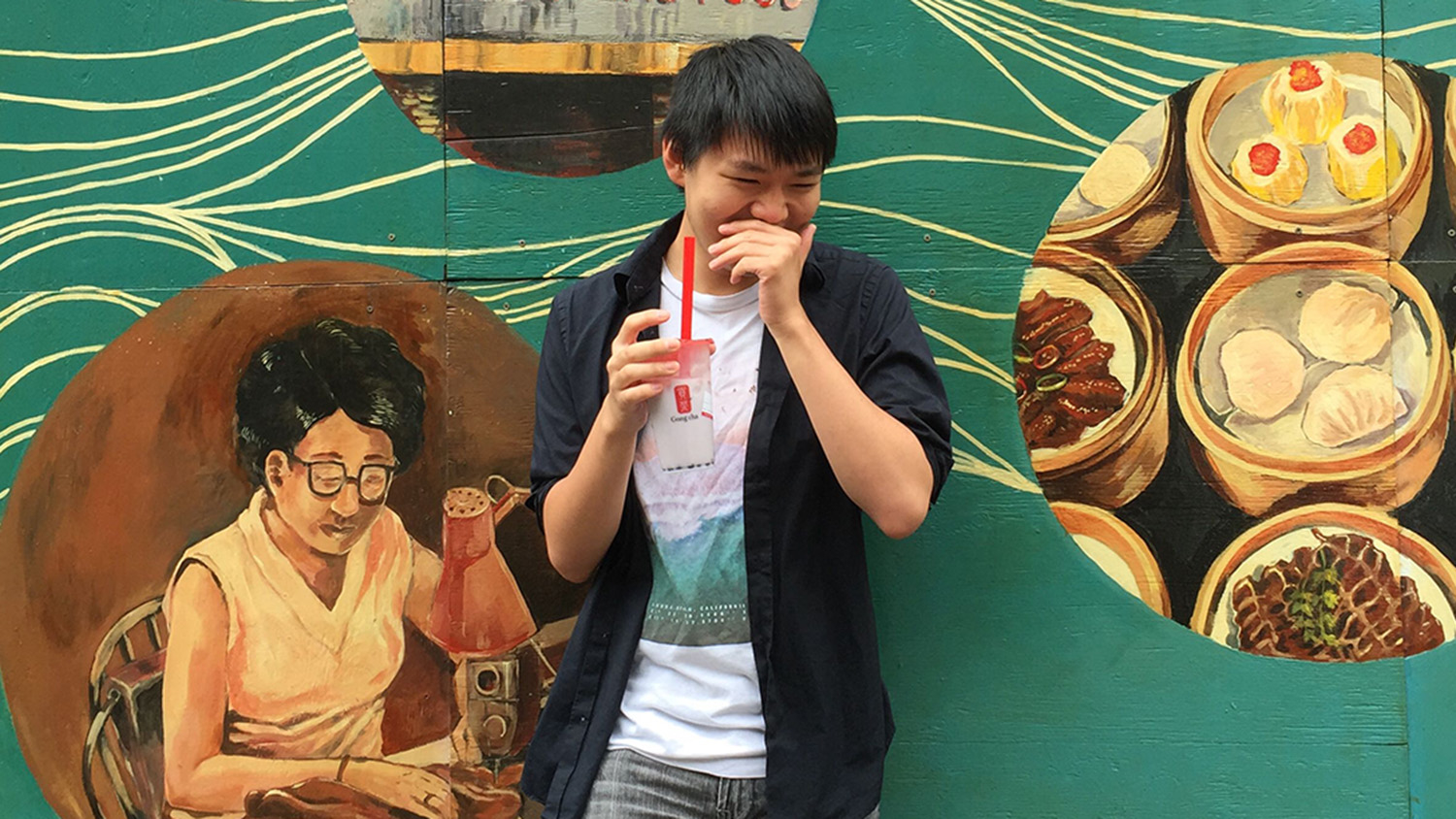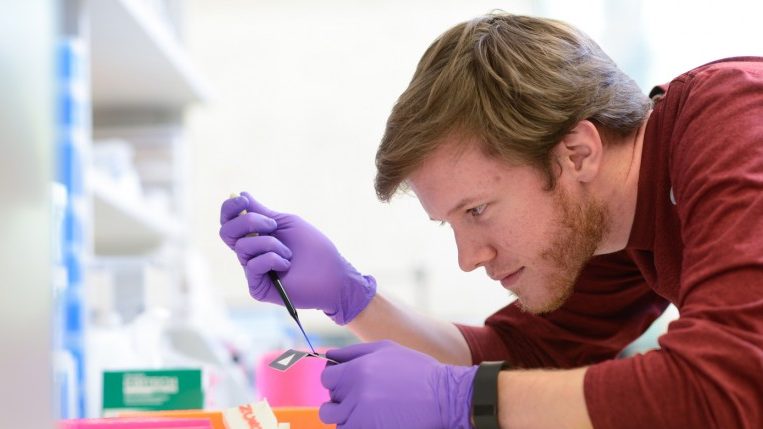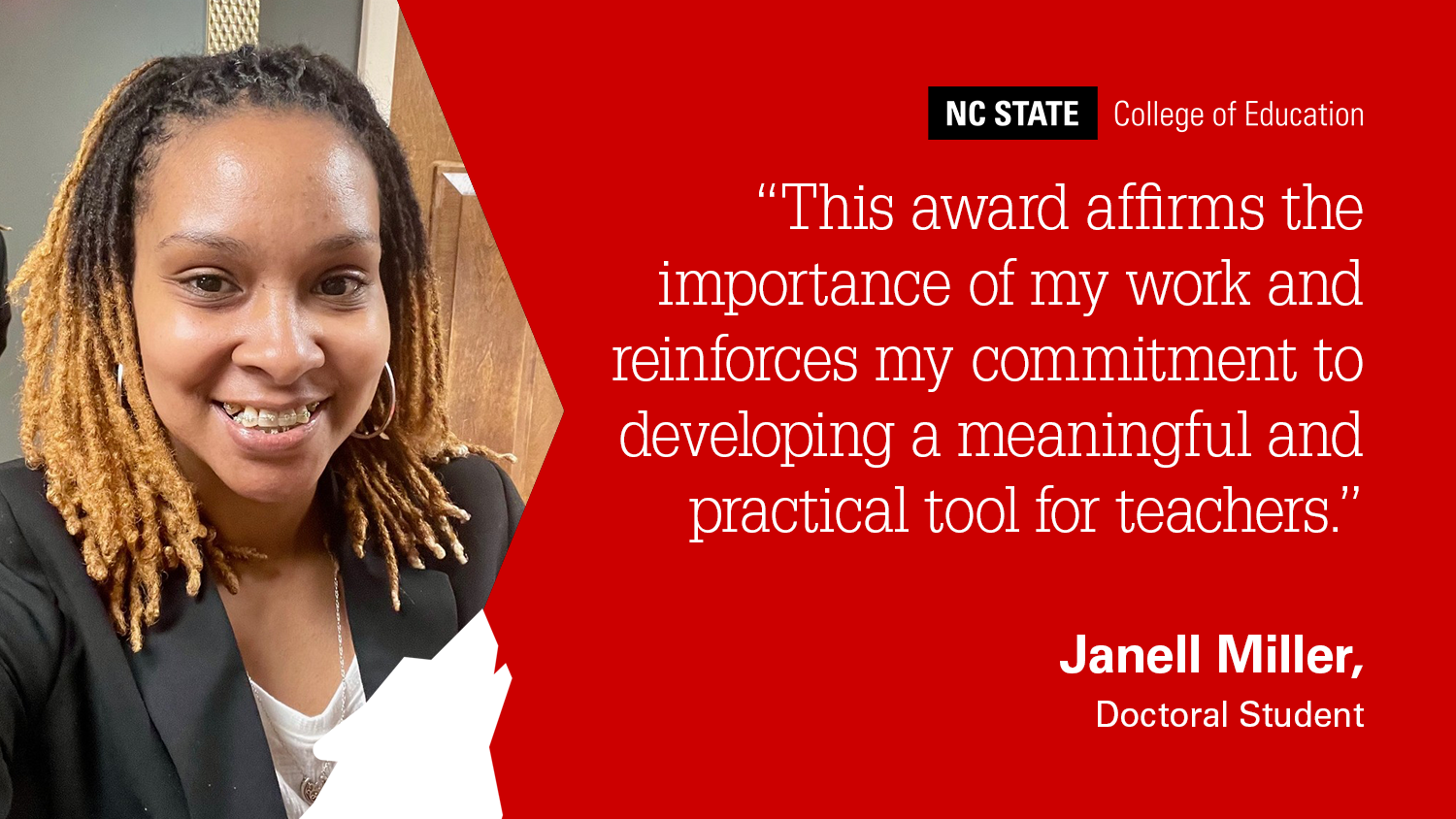In each edition of Pack IDEAs (Inclusion, Diversity, Equity, and Access), a newsletter released by the NC State College of Education Change Agent Task Force, we highlight faculty, students and alumni who have expertise and experiences that align with advancing diversity, equity, and inclusion (DEI) within the college. In becoming an anti-racist college community, we must deepen our commitment to creating and sustaining a healthy teaching and learning community that uplifts the humanity of all people, but especially Black, Indigenous and people of color, who due to structural inequities are marginalized in education and society. The spotlight feature offers a counternarrative that celebrates and showcases the brilliance of individuals within our college community.
George Duo ’22MED
Higher Education Administration Program
Educational Leadership, Policy, and Human Development
What is your current role in the NC State College of Education? I am a first-year graduate student in the Master of Education (M.Ed) in higher education administration program.
Why is diversity, equity, and inclusion (DEI) in education important to you? There are many answers I could give to this question, but I’ll start with that it is my firm belief of education as a basic right. I believe everyone should have access to an education, and I believe that pursuing an education that is accessible and beneficial to every student requires the principles of DEI. Providing an enriching and quality education for everyone requires diverse perspectives, and it also requires the acknowledgment that the students we are serving are going to be diverse.
Failing to acknowledge this will continue to enable historic inequities where minoritized groups, their knowledge, their voices and their experiences are systematically silenced and disregarded. I believe in education as a force for good, but in order to accomplish that, DEI principles must be a part of my mindset and my practice as an educator.
Are you currently conducting research around the area of diversity, equity, and inclusion? If so, tell me a little about your research. As a current graduate student, the focus of my work and study does not involve research. However, one point of self-study that I have taken on is studying the presence of Asian American students and individuals in higher education, how the Asian American identity is navigated on college campuses and how Asian American identities are supported, for example. One salient point for me is the recognition that many colleges and universities still perpetuate historically problematic practices that erase the diversity of Asian American experiences. One example would be failing to collect disaggregated data regarding the Asian student population, and instead lumping Asian students together under a collective statistic. This perpetuates the model minority myth and erases the differences (i.e. rate of degree/educational attainment, financial ability, etc.) across Asian American subgroups which vary widely.
What are you hoping to accomplish as a result of your study and how do you hope it impacts the field of education and learners? Through my study, I am hoping to be able to open up discussions around the vastness and diversity of the Asian and Asian American identity and begin work on creating support systems and structures for Asian students.
Are there community projects and/or initiatives you are involved in that are related to diversity, equity, and inclusion? Tell me about those projects. I currently work as a graduate assistant for the Study Abroad Office. As part of my role, I work with our assistant director for diversity and inclusion. The office does a “Traveling While” series focused around different identities, and I am currently helping plan one focused on exploring mental health and wellness while traveling.
What do you hope to teach future educators and scholar-leaders about equity and inclusion in education? For me, I think one of the most important things is the recognition that equity and inclusion must exist at every level and every practice in education. I believe that DEI work must be seen as a daily practice and mindset. I believe that is important that we examine our own practices and scrutinize if they were built specifically with the acknowledgment of diversity in mind, rather than the assumption that a “one-size fits all” approach can effectively serve our diverse students.
For other educators and teacher-leaders who are interested in learning more about social justice and anti-racist education, what are two resources you would recommend? For perspectives from other anti-racist educators, I’d recommend looking at @antiracisteducationnow and @teachandtransform, who provide great insights, perspectives and resources about tackling anti-racism in higher education and creating a more equitable world for educators. For studying specifically Asian Pacific Islander Desi American (APIDA) students, I’d personally recommend “Asian Americans and Pacific Islanders in Higher Education: Research and Perspectives on Identity, Leadership and Success,” published by NASPA.
Is there anything else you’d like to share with the College of Education community? It is important to value and prioritize your wellbeing. Your work can be your passion, but also remember that you come first as a person and human being. For those of us who hold marginalized identities and have to navigate systemic racism and oppression, it can be difficult and reignite scars of the past during our pursuit of anti-racist education. Hold your passion for the necessary work required to create a more equitable world, but also remember to hold space for yourself too.
This post was originally published in College of Education News.
- Categories:



